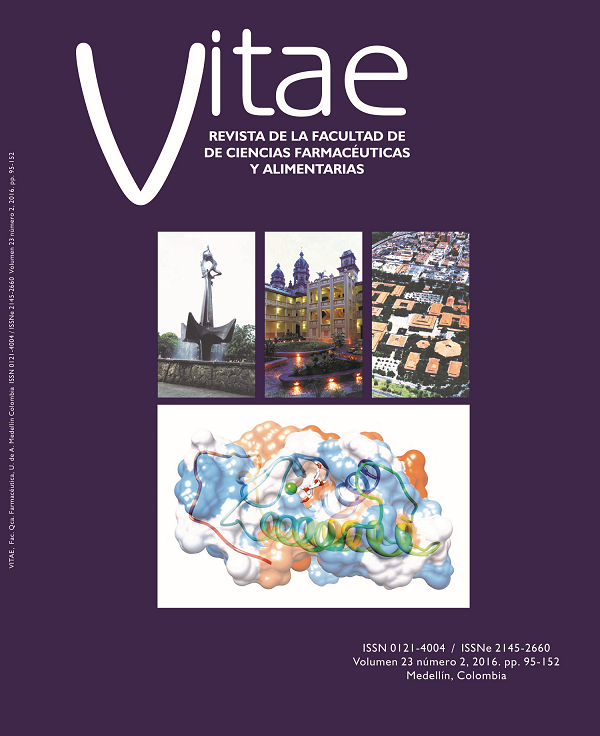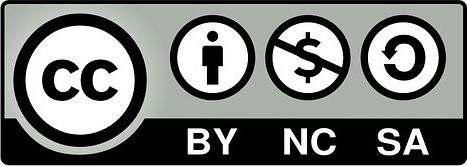Pharmacist-led patient education on antiretroviral therapy: is it enough to improve adherence?
DOI:
https://doi.org/10.17533/udea.vitae.v23n2a02Keywords:
Medication Adherence, Pharmaceutical care, Patient Compliance, Acquired Immunodeficiency Syndrome, Highly Active Antiretroviral TherapyAbstract
Case presentation: A 58-year-old man with AIDS, under ART treatment for 12 years, presenting non-compliance due pharmacotherapy complexity and lack of knowledge regarding disease and treatment. A care plan including pharmaceutical and educational interventions was established during a 7-month follow up. The plan mainly contemplated individual educational interventions with a few adjustments in the pharmacotherapy. Improvement of adherence and increase in quality of life where achieved in the end of the interventions, but no clinical impact was observed. Conclusion: Although increase in self-care and compliance to ART were enhanced, less complex regimens decided in cooperation between pharmacists and physicians could achieve better outcomes and solve some adverse-effects.
Downloads
References
Guimarães MDC, Rocha GM, Campos LN et al. Difficulties reported by HIV-infected patients using antiretroviral therapy in brazil. Clinics. 2008; 63(2): 165-172.
Knobel H, Alonso J, Casado JL et al. Validation of a simplified medication adherence questionnaire in a large cohort of HIVinfected patients: the GEEMA Study. AIDS. 2002; 16(4): 605-613.
Remor E, Milner-Moskovics J, Preussler G. Adaptação brasileira do “Cuestionario para la Evaluación de la Adhesión al Tratamiento Antirretroviral”. Rev Saúde Pública. 2007; 41(5): 685-694.
De Soárez PC, Castelo A, Abrão P, Holmes WC, Ciconelli RM. Tradução e validação de um questionário de avaliação de qualidade de vida em AIDS no Brasil. Rev Panam Salud Publica. 2009; 25(1):69–76.1. Guimarães MDC, Rocha GM, Campos LN et al. Difficulties reported by HIV-infected patients using antiretroviral therapy
in brazil. Clinics. 2008; 63(2): 165-172.
Knobel H, Alonso J, Casado JL et al. Validation of a simplified
medication adherence questionnaire in a large cohort of HIVinfected patients: the GEEMA Study. AIDS. 2002; 16(4): 605-613.
Remor E, Milner-Moskovics J, Preussler G. Adaptação brasileira do “Cuestionario para la Evaluación de la Adhesión al Tratamiento Antirretroviral”. Rev Saúde Pública. 2007; 41(5): 685-694.
De Soárez PC, Castelo A, Abrão P, Holmes WC, Ciconelli RM. Tradução e validação de um questionário de avaliação de qualidade de vida em AIDS no Brasil. Rev Panam Salud Publica. 2009; 25(1):69–76.
Kelly DV, Bishop L, Young S, Hawboldt J, Phillips L, Keough TM. Pharmacist and physician views on collaborative practice: Findings from the community pharmaceutical care project. Can Pharm J (Ott). 2013; 146(4): 218–22.
Palella FJ Jr, Delaney KM, Moorman AC et al. Declining morbidity and mortality among patients with advanced human immunodeficiency virus infection. HIV Outpatient Study Investigators. N Engl J Med. 1998; 338(13):853-860.
Shuter J. Forgiveness of non-adherence to HIV-1 antiretroviral therapy. Journal of Antimicrobial Chemotherapy. 2008; 61: 769–773.
Recsky MA, Brumme ZL, Chan KJ, Wynhoven B, Yip B, Dong WW, et al. Antiretroviral resistance among HIV-infected persons who have died in British Columbia, in the era of modern antiretroviral therapy. Journal of Infectious Diseases. 2004; 190 (2), 285–92
Downloads
Published
How to Cite
Issue
Section
License
Copyright Notice and Open Access Statement
The Journal Vitae works under the Open Access license, and the published manuscripts remain available for the public, both on the Journal's website and in databases, under the Creative Commons license, "Noncommercial Attribution" and "Share alike" systems, adopted in Colombia. Hence, when the authors agree to publish in the Journal Vitae, they will not have the right to economic retributions on publications and reproductions through different diffusion media. The documents are freely available to the internet public, permitting users to read, download, copy, distribute, print, search, or link to the full texts and pass them as data to software. The only constraint on reproduction and distribution, should be to give authors control over the integrity of their work and the right to be appropriately acknowledged and cited.
Authors declare that:
-
They are the intellectual property owners and are responsible for all the information stated in the article.
-
This manuscript has not been submitted or published in other printed or digital media. They accept the responsibility for the judgments, opinions, and points of view expressed in the published article and, therefore, they exonerate Universidad de Antioquia and Journal Vitae from any process.
-
They exempt Universidad de Antioquia and Journal Vitae from settling conflicts or disputes related to the authorship of the referred article.
-
They accept the revision of the original manuscript by suitable personnel, and they bind themselves to perform the corrections appointed or suggested by the assessors.
-
Therefore, they know the editorial process and will not bind the Editorial Board of the Journal to assume any obligations regarding the volume and issue in which the article is published.
-
They transfer the rights of publication, reprinting, and distribution of the article from the moment of its approval, in print and digital format, without the right to economic rewards, and under the licensing conditions considered relevant by Journal Vitae.
-
They fully authorize Universidad de Antioquia and Journal Vitae to submit the published material to the diverse databases and indexing systems where the Journal can be found to comply with the requirements of the regulatory authorities to maintain the national classification of journals.
-
They will assume the article publication costs established for the current issue, and they will make the payment as soon as they are informed about the volume and the issue in which the final version of the article is published.
-
After the article is published, you can share digital or printed copies in a noncommercial manner. You will be able to use the paper in your institution or company for educational or research purposes, including the use in course programs.
Conflict of interest: Authors are responsible for recognizing and disclosing any financial or other benefits that could be perceived to bias their work, acknowledging all financial support and any personal connections with potential sponsors. Examples of such conflicts include receiving research funds or honoraria, serving on advisory boards, stock ownership, or employment and consulting arrangements. Authors without such connections should clearly state that they have no financial support or personal relationships that could be perceived to bias their work. All conflicts of interest should be disclosed on the author's identification page of the manuscript.










